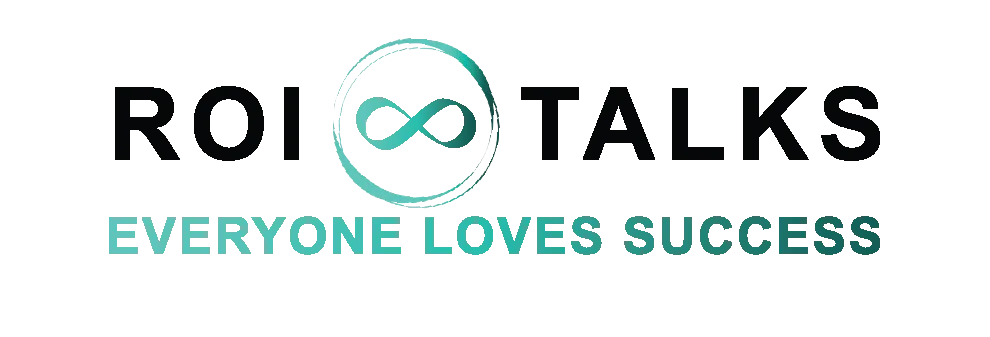Everyone Loves Success
ROI TALKS
Roi Talks Blog

9. Rejection | Soul of Sales - The Nine Universal Laws
Overcoming rejection is an admirable quality that only a few possess. Such individuals view rejection as an opportunity to grow and learn from their experiences. They avoid letting rejection hold them back or affect their confidence, instead, they use it as a stepping stone to their next opportunity.
To date, I find that the most amazing people are those who pass through rejection. It it is amazing how they take a rejection or let us say a NO as the "next opportunity". Every rejection is a learning and development for them.
A few evolved individuals say:
"Rejection is a divine redirection, towards something beautiful, brighter and bolder beyond your imagination".
According to a study by InsideSales.com, sales reps need to make an average of 8 cold call attempts to reach a prospect, and it takes up to 18 calls to actually connect with a buyer. In a survey of over 200 sales reps by RAIN Group, 83% of respondents reported feeling rejected at some point during the sales process.
One area where rejection is particularly challenging is sales. Salespeople face the constant possibility of rejection, which can be demoralizing and make them doubt their abilities. However, for those who have mastered the art of overcoming rejection, it is a chance to learn and grow. They do not view rejection as a reflection of their skills or abilities, but rather as a learning experience that will help them improve in the future.
Another study by CSO Insights found that only 27.3% of sales opportunities actually resulted in a win, meaning that the majority of sales reps face rejection on a regular basis. Rejection in sales can also have a significant impact on mental health. In a study by the Harvard Business Review, 800 salespeople were surveyed, and those who experienced the most rejection had higher rates of depression, anxiety, and overall emotional exhaustion.
While most people view rejection as a negative experience, some evolved individuals see it as a divine redirection. They believe that rejection is leading them towards something better, even if they cannot see it at the moment. They have trust and faith in the universe that everything is working out for their highest good, even if they do not fully understand it.
One example of rejection in sales can be seen in the story of Jack Daly, a sales coach and speaker who was rejected by 25 different banks when trying to get a loan to start his own business. He persisted and eventually succeeded, but the rejection he faced along the way was a significant challenge.
Another example can be seen in the experience of salespeople who work in the technology industry. With so many new technologies and innovations constantly emerging, it can be difficult for sales reps to keep up and convince potential buyers that their product is the best option. This can result in frequent rejection and a high level of competition.
However, for many of us, rejection can be devastating. It can affect our confidence and self-worth, making us feel like we are not good enough. In those moments of rejection, it can be challenging to see the bigger picture and trust that everything is working out as it should.
It is important to remember that rejection is not a reflection of our worth or abilities. It is merely a part of life that everyone experiences. The key is to learn from the experience and use it as a catalyst for growth and improvement. With time and practice, we can learn to overcome rejection and use it as a stepping stone towards our next opportunity.
Here's a framework to help salespeople pass through rejection:
Reframe rejection: Instead of viewing rejection as a personal failure or an attack on your skills and abilities, reframe it as a learning experience. Every rejection can provide valuable insights into what you can do better next time. See it as an opportunity to grow and improve, rather than a setback.
Prepare for rejection: Expecting rejection and being mentally prepared for it can help reduce the impact it has on you. Set realistic goals and acknowledge that not every prospect will say yes. This will help you approach each interaction with a more wholesome mindset and be better equipped to handle rejection when it does occur.
Analyze the situation: When you do face rejection, take the time to analyze what happened. Did you not explain your product or service clearly enough? Did you not fully understand the prospect's needs and pain points? Understanding what went wrong can help you make adjustments and improve your approach.
Stay positive: It can be easy to get discouraged after facing rejection, but it's important to stay positive. Remind yourself of your strengths, past successes, and the value you provide. Celebrate small wins along the way and keep your focus on your ultimate goal.
Seek feedback: Never be afraid to ask for feedback from prospects, colleagues, or mentors. This can help you gain valuable insights into what you're doing well and what you can improve on. Use this feedback to adjust your approach and refine your sales strategy.
Take action: Finally, take action based on what you've learned. Use the insights gained from rejection to make adjustments to your sales approach, and continue to refine and improve your strategy over time. Remember, rejection is not a reflection of your worth or abilities - it's simply a part of the sales process. Keep pushing forward and learning from each experience.
Rejection could feel like the end of the road. When a rejection happens see, feel and hear it is a stepping stone towards success. Salespeople who learn to embrace rejection and see it as an opportunity to learn, grow, and improve their approach are the ones who achieve greatness.
The most amazing people are not those who never face rejection, but rather those who pass through it time and time again. Each rejection provides valuable insights and teaches us to be better salespeople, refine our approach, and to connect with customers in new and meaningful ways. While rejection can be difficult, it is not a barrier to success, but rather a challenge to pass through them.
Keep moving forward, stay wholesome, seek feedback, and take action. Remember, rejection is not a reflection of your worth or abilities, it is part of sales learning. Believe in yourself, trust in your skills, and keep striving towards your goals. With hard work, smart work, resilience, and a wholesome mindset, you can achieve anything you set your mind to.
ROI TALKS™
Marina Plaza - Office 1004 -1006
Dubai Marina, Dubai, UAE





